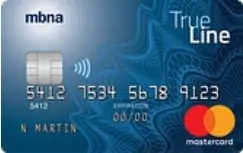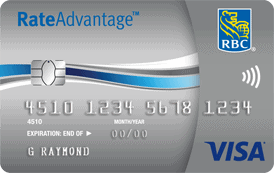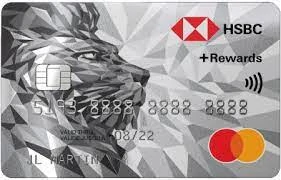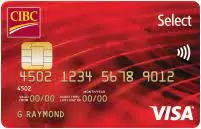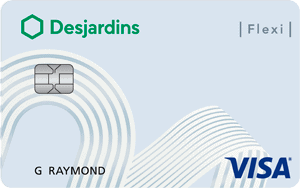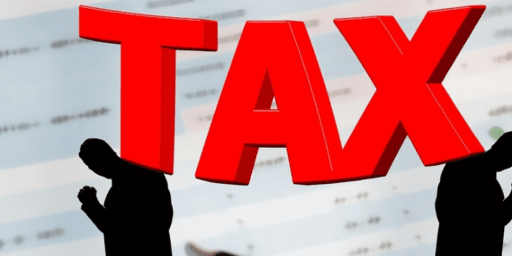Best Low Interest Credit Cards in Canada
We all know that it is best not to keep a balance on a credit card, and in a perfect world, we wouldn’t. In reality, there will be times in life when unexpected expenses will pop up, requiring us to carry a credit card balance for a little while. In this situation, you’ll be looking for the best low interest credit card to help you pay off the balance faster.
Or maybe you have multiple high interest credit cards, but you are looking to transfer those balances to a low interest credit card, allowing you to take control of your finances and get out of debt more quickly.
Using a low interest credit card is a smart money move that can help save you hundreds, or even thousands of dollars over time.
Canadians have a range of low interest credit cards to choose from, and in this overview of the absolute best low interest credit cards in Canada, we will reveal just how low their interest rates are, the additional perks you will get, and how to choose the best low interest credit card for you.
Top 5 Low Interest Cards Compared
$0
12.99% / 24.99%
$0
Prime Plus 4.99%-8.99%
No Available Promotion
$25
11.99%
$29
13.99%
$0
10.90%
No Available Promotion
Best Overall: MBNA True Line Gold Mastercard
The credit card with the lowest fixed interest rate on the market (as of January 2025) is the MBNA True Line Gold Mastercard. This card offers users a fixed rate of 12.99% on purchases, balance transfers, and access cheques, which is less than half the rate of most credit cards on the market today.
As an added bonus, the MBNA True Line Gold Mastercard has completely dropped their annual fee. This is a great value at a low fixed interest rate.
Annual Fee: $0
Interest Rate: 12.99%
Perks:
- Welcome bonus of 0% annual interest rate for all balance transfers for the first 12 months of opening the account, as long as the transfers are made within 90 days of opening the account.
- Purchase Assurance
- Extended warranty benefits
- 10% discount on Avis and Budget car rental base rates in Canada and the US. At least 5% discount internationally.
- Payment plan available for larger purchases.
We love the low rate on the MBNA True Line Gold Mastercard, plus the fact that it does come with a few perks. Although the interest rate is higher than other low interest credit cards, we still feel that it’s worth the investment.
Lowest Variable Rate: RBC RateAdvantage Visa
With current Prime rates starting at 4.99%, the variable rate credit card with the lowest rate is the RBC RateAdvantage Visa – if you have a good credit score. The RBC RateAdvantage Visa offers rates as low as Prime + 4.99% for cardholders with good credit, meaning a range of 760-900.
RBC can raise their interest rates as high as Prime + 8.99% for applicants, depending on their credit score, so if your credit is less than awesome, the National Bank Syncro Mastercard (which offers Prime + 4.9%, with a fixed minimum rate of 8.9%) may give you a better interest rate. However, we prefer the RBC RateAdvantage Visa for cardholders who have good credit.
Annual Fee: $0
Interest Rate: Prime plus 4.99%-8.99% depending on your credit.
Perks:
- Purchase security
- Extended warranty
- Link your card with Petro Points for 3 cents off per litre at Petro Canada stations
- Earn Be Well bonus points when you shop at Rexall
- Pay nothing for deliveries from DoorDash for the first 3 months
We appreciate the RBC RateAdvantage Visa not only because it has the lowest rates on offer, but also because that rate is the same for purchases and balance transfers. The National Bank Syncro Mastercard offers a minimum interest rate of 12.9% on balance transfers, 4% higher than their rate for purchases.
If you have a balance to transfer, it’s worth doing the math, because the RBC RateAdvantage Visa may still give you the best rate even if your credit isn’t perfect.
Best Low Interest Credit Card for Rewards: HSBC +Rewards Mastercard
One of (very) few low interest credit cards that offers a rewards program, the HSBC +Rewards Mastercard stands out from the crowd. HSBC Plus Rewards points can be used for travel, gift cards, merchandise, statement credits, or cash back, and the HSBC +Rewards Mastercard offers a welcome bonus of 35,000 points (a $175 value) when you apply. As an added bonus, your first year annual free will be waived.
While some other cards on this list offer a lower interest rate and there are higher-interest rewards cards out there that offer more substantial earn rates (check out our collection of the Top Free Rewards Cards as well as our Best Travel Credit Cards in Canada), the HSBC +Rewards Mastercard is an excellent choice if you’re looking to combine both rewards and low APR in a single card.
Annual Fee: $25
Interest Rate: 11.9%
Welcome Bonus: 35,000 HSBC Plus Rewards points ($175 value, redeem for travel/gift cards/merchandise/financial rewards), first annual fee rebate for primary cardholder. As an additional bonus, you’ll receive 40,000 bonus points when you keep your account open and active for 180 days
Earn Rate: 2 points per $1 on dining and entertainment, 1 point per $1 for everything else
Perks:
- Price protection (60 days)
- Purchase assurance
- Extended warranty
We do love a welcome bonus, and a $175 value bonus for a card with a $25 annual fee (plus a rebate of the first annual fee), and the potential to earn an additional $200 worth of travel points in the first 90 days is honestly spectacular.
The HSBC+ Rewards Mastercard isn’t swimming in other perks, but it’s a solid card for people who want to earn points while keeping their interest rates low.
Best Low Interest Credit Card for Introductory Balance Transfers: CIBC Select Visa
Maybe you’re carrying a significant balance on another card and are looking to transfer it to a lower interest card and pay it off ASAP. If that’s the case, consider the CIBC Select Visa – which is in our opinion the overall best balance transfer credit card in Canada.
This card doesn’t boast the lowest base interest rate – but it does offer new cardholders 0% interest for up to 10 months on balance transfers (with a 1% fee). It’s the best balance transfer offer we found and could help you pay off your balance faster.
The CIBC Select Visa doesn’t come with any perks and has a $29 annual fee (rebated in the first year), so if you’re looking for more bells and whistles for your money, you can find more for less elsewhere. But if you’re carrying a balance on another card and want to focus on reducing that balance fast, this is a great choice.
Annual Fee: $29
Minimum Income: $15,000
Interest Rate: 13.99%
Welcome Bonus: 0% interest for up to 10 months on balance transfers with a 1% fee, first year fee rebated.
Other perks:
- Insurance coverage
- Up to 10 cents off per litre at participating gas stations
- Send money abroad with no transaction fees
Our editorial team agrees that the introductory balance transfer bonus is what makes the CIBC Select Visa card so appealing. Having almost a year to pay off a balance without worrying about interest fees at all is incredibly helpful and makes this card a winner in our books.
Best No-Fee Low Interest Credit Card: Desjardins Flexi Visa
The best no fee, low interest credit card in Canada is the Flexi Visa from Desjardins. Not only is the interest rate the lowest of all the fixed rate no-fee cards we looked at – a respectable 10.9% – but the card is packed with features compared to many of its competitors.
The Flexi Visa offers mobile device insurance as well as purchase protection, an extended warranty, and car rental discounts. It also offers a suite of travel insurance, another thing that sets it apart from the rest.
If you’re under 75, the Desjardins Flexi Visa will cover you for medical emergency expenses up to $5 million for 3 days. And while that’s not a long time as trips go, it’s better than no coverage at all. Cardholders also have the option of extending their coverage for a fee if they want to travel for longer.
Obviously, if travel insurance is your number one concern, you’d be better off looking into a card from our list of the Best Travel Credit Cards in Canada, or possibly our Best Aeroplan Cards in Canada—but if you’re looking for a low interest card that happens to also have travel insurance, this is your best bet.
Annual Fee: $0
Interest Rate: 10.9%
Travel Insurance:
- Emergency Medical coverage ($5 million per person under 75 for 3 days, with the option to extend coverage for a fee)
- Trip cancellation ($500/person)
- Trip interruption ($1,000/person)
- Baggage (Up to $500/person if baggage is lost, damaged, stolen, or delayed for more than 6 hours)
Perks:
- Purchase protection
- Extended warranty
- Mobile device insurance (up to $1,000)
- Car rental discounts (up to 15% off Hertz car rental, up to 10% off Thrifty and Dollar)
- Installment payment options for qualifying purchases
- Get cash advances for the same low rate of 10.9%
With one of the lowest fixed rates on the market, plus an excellent suite of perks, the Desjardins Flexi Visa would easily be worth an annual fee of $29+. The fact that it’s a no-fee card truly sets this one apart and makes it worth serious consideration. Not only does it get our nod for best no-fee credit card, but we also think it deserves recognition for best travel insurance and best perks. It’s that good.
Typical Credit Cards vs Low Interest Cards: Pros and Cons
Low interest credit cards are great for cardholders who carry a balance month to month. With typical credit card interest rates sitting around 20%, a credit card with an APR of 9-13% can make a huge difference over the course of a year.
Say you’re carrying a balance of $5,000 and paying $200/month on your card. If you have a typical interest rate of 19.99%, you’ll end up paying $1,521.02 in interest over the course of 2 years and 9 months before you get rid of that balance.
On the other hand, if you have a middle-of-the-pack low interest card with an interest rate of 10.99%, not only will you pay off your balance 4 months sooner, you’ll also pay only $704.36 in interest—a savings of $816.66. And that’s with an average low interest rate—our lowest fixed interest card would pay off the balance even faster and save you nearly $1,000 ($963.82, to be exact).
Apart from a great interest rate, low-interest credit cards also feature:
- Lower or no fees: Low-interest credit cards are by no means the only low or no-fee cards on the market, but it does tend to be a feature in this category. The highest annual fee on our list is $39, compared to a $120-150 fee for some of the more premium cards we feature.
- Lower or no required minimum income: only one card on the list, the CIBC Select Visa, lists a required minimum income, and even that is only $15,000. This makes low interest cards easier to apply for, something we always appreciate.
However, the reduced demands on your wallet have a downside. Some cons of low APR credit cards include:
- Fewer (if any) perks: for low interest cards that do feature perks, they generally don’t go beyond an extended warranty program, purchase protection, and (sometimes) a small discount on car rentals. And some cards don’t offer these perks at all. Cards that do offer more than this are noteworthy (and trust us, we noted them for you!)
- No travel insurance: most low-interest cards do not include any kind of travel insurance. Some cards do offer travel insurance as an optional add-on, but for an additional fee. Please note that we said most—we’ll get to it soon.
- No rewards programs: it’s extremely rare for a low interest card to offer rewards. A few do it, but the majority don’t, and earn rates are lower than many other rewards cards on the market.
Fixed vs Variable Rate Credit Cards
APR rates come in two varieties: fixed and variable. When you’re shopping for a new credit card, and especially when you have low interest rates in mind, it’s helpful to understand the difference.
Fixed rate cards have a set (fixed) rate of interest which is set by the credit card company or bank. Meanwhile, variable rate cards base their interest rates on Canada’s Prime rate. You’ll see this written as Prime + X%, meaning that the credit card company will charge you the Prime interest rate plus whatever percentage they’ve deemed appropriate (for example, the RBC RateAdvantage Visa charges interest rates as low as Prime + 4.99%).
As you can imagine, there’s a certain unpredictability when it comes to variable rates. If you choose to go with a variable rate card, be aware that the credit card company won’t inform you if the Prime rate (and, as a result, your card’s interest rate) changes. With a fixed rate card, however, you’ll be notified in writing of any change in your interest rate.
While some consumers appreciate the predictability of a fixed rate, others appreciate the chance at a lower total rate when Prime rates are favourable. If Prime rates are low (and they currently are), a variable rate card may give you a lower total interest rate than many fixed rate cards. The best choice here really depends on your personal preference.
Low Interest Credit Cards: Some Things to Consider
When you set out on the hunt for a new credit card, it pays to take stock of your priorities, goals, and spending habits before you begin. In the last two sections we looked at some pros and cons to help you determine whether a low interest card is the right fit for you, and we also looked at fixed vs variable rates to help you understand the difference.
Now it’s time to ask yourself a few more questions:
- Are you planning to transfer a balance onto the card? (If so, you’ll want to look for a card that charges the same rate for purchases and balance transfers)
- What’s most important to you? Do you want the absolute lowest rate, or would you settle for a slightly higher rate if other factors are favourable?
- Are you willing to pay a fee? (Hint: You should be willing to pay a small fee if it saves you hundreds of dollars in interest costs over the course of the year.)
- Do you care about what perks you get (or whether you get any)?
- Are reward points important to you?
In a way, this all boils down to this one fundamental question: why do you want a low-interest credit card and what do you want it to do for you? Once you know that, your search will be much easier, and you’ll be able to look at our list of the best low interest credit cards with a definite goal in mind.
If you still have a hard time deciding, you can read our article about the best cards in Canada and see how these low interest credit cards compare.
How to Reduce Credit Card Interest Rate?
Let’s say you have read through everything there is to know about the best low interest credit cards in Canada but are a little apprehensive about applying for a new card or transferring your balance.
If that is the case, you are in luck, there may be a way to reduce your credit card interest rate on cards you already have.
If you have established a solid history of making on-time payments in full with your current credit card companies, they might lower your interest rate. Just give them a call and ask if you can have a lower interest rate.
Another way to qualify for lower interest rates is to keep your credit score in excellent standing. That way, you’ll likely receive the lowest rates from the get go.
Canadian Low Interest Credit Cards: FAQ
The Best Low Interest Credit Card in Canada: Final Thoughts
Canada has some outstanding options when it comes to low interest credit cards. With $0 annual fee cards such as the RBC RateAdvantage Visa and the Desjardins Flexi Visa, you get to keep more of your money and enjoy low interest rates.
If you don’t mind paying a higher fee for a few extras, and still save on interest, the HSBC + Rewards Mastercard could be what you are looking for.
Ultimately the decision lies with you and what is best for your personal needs and goals. No matter what they are, we are certain that one of the best low interest credit cards in Canada on our list will be right for you.
If you are still searching for the right card for cash back rewards, check out our full article on the Best No-Fee Cash Back Credit Cards in Canada. If free travel is your goal, head over to our full write up on the Best Travel Credit Cards in Canada.
I've Completed My Million Dollar Journey. Let Me Guide You Through Yours!
Sign up below to get a copy of our free eBook: Can I Retire Yet?

